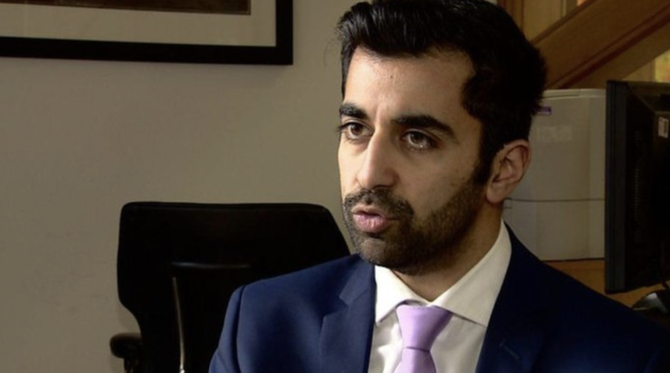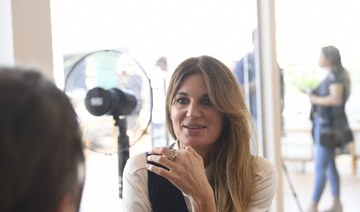LONDON: Scotland’s health secretary and his wife have dropped a £30,000 ($36,000) legal case against a nursery they had accused of discriminating against their daughter due to her Muslim-sounding name.
Humza Yousaf and Nadia El-Nakla claimed in August 2021 that the Little Scholars day nursery in the Scottish city of Dundee had refused to give their 2-year-old daughter a place, while at the same time had taken in children with “white Scottish-sounding” names.
El-Nakla, along with one of her white friends, subsequently applied to the nursery using fictitious applications for children with “white-sounding names,” who were accepted.
In a Twitter thread posted by Yousaf and his wife at the time, which laid out their allegations, the health secretary said: “I cannot tell you how angry I am.”
The couple launched legal action following a report from the Care Inspectorate, which upheld their complaint and found the nursery did not “promote fairness, equality and respect.” It instructed the nursery to make changes in its procedures.
The owner of Little Scholars, Usha Fowdar, who herself is of South Asian origin, was reported to be “furious” at allegations of discrimination on religious or ethnic grounds at the time of the complaint.
The legal representative for Yousaf and El-Nakla, who is one of the most prominent Muslim politicians in the Scottish National Party, confirmed court proceedings had ceased, the BBC reported.
“[The couple] only ever wanted the nursery to accept the findings of the independent Care Inspectorate investigation and for the nursery to make changes,” Aamer Anwar said.
“The nursery owners may wish to say that they were prepared 100 percent to go to court, but this was a joint agreement reached, and on their acknowledgment of the findings of an independent investigation and implementing the necessary changes in full.”
Fowdar said in a statement on Tuesday: “Whilst we were 100 percent prepared to see Ms El-Nakla in court, we are extremely pleased that this baseless legal action has been terminated.
“It bears repeating that, despite some extremely misleading headlines and spurious allegations, the Care Inspectorate identified administrative processes for improvement which had nothing to do with discrimination, because there never was any discrimination.
“[It] beggars belief that, rather than pick up the phone to quickly resolve what was a simple misunderstanding, they colluded in a half-baked sting operation and then mounted a vicious and cynical campaign against us in the national media. What sort of people do that?”














